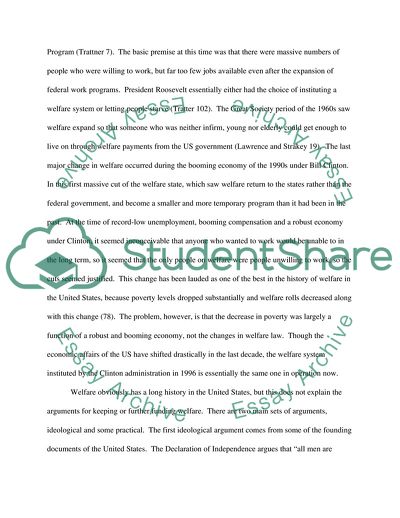Cite this document
(Welfare in The United States Research Paper Example | Topics and Well Written Essays - 1500 words - 1, n.d.)
Welfare in The United States Research Paper Example | Topics and Well Written Essays - 1500 words - 1. https://studentshare.org/macro-microeconomics/1754441-should-taxpayers-continue-to-fund-welfare-and-do-illegal-immigrants-contribute-to-the-welfare-state
Welfare in The United States Research Paper Example | Topics and Well Written Essays - 1500 words - 1. https://studentshare.org/macro-microeconomics/1754441-should-taxpayers-continue-to-fund-welfare-and-do-illegal-immigrants-contribute-to-the-welfare-state
(Welfare in The United States Research Paper Example | Topics and Well Written Essays - 1500 Words - 1)
Welfare in The United States Research Paper Example | Topics and Well Written Essays - 1500 Words - 1. https://studentshare.org/macro-microeconomics/1754441-should-taxpayers-continue-to-fund-welfare-and-do-illegal-immigrants-contribute-to-the-welfare-state.
Welfare in The United States Research Paper Example | Topics and Well Written Essays - 1500 Words - 1. https://studentshare.org/macro-microeconomics/1754441-should-taxpayers-continue-to-fund-welfare-and-do-illegal-immigrants-contribute-to-the-welfare-state.
“Welfare in The United States Research Paper Example | Topics and Well Written Essays - 1500 Words - 1”. https://studentshare.org/macro-microeconomics/1754441-should-taxpayers-continue-to-fund-welfare-and-do-illegal-immigrants-contribute-to-the-welfare-state.


